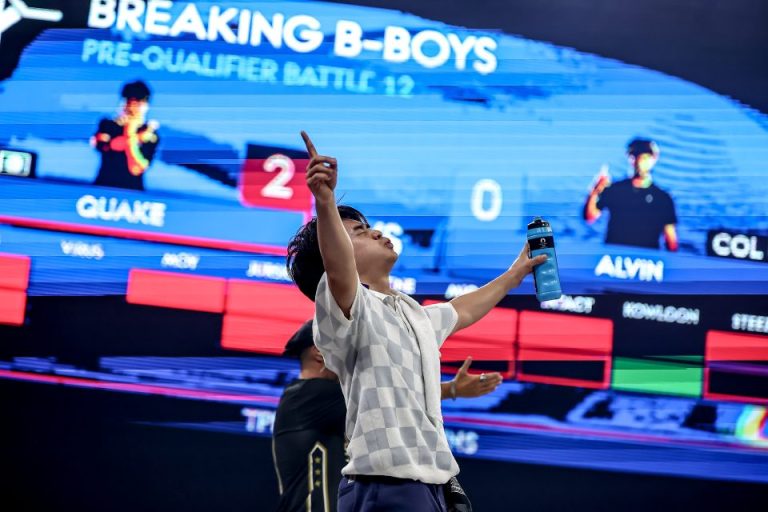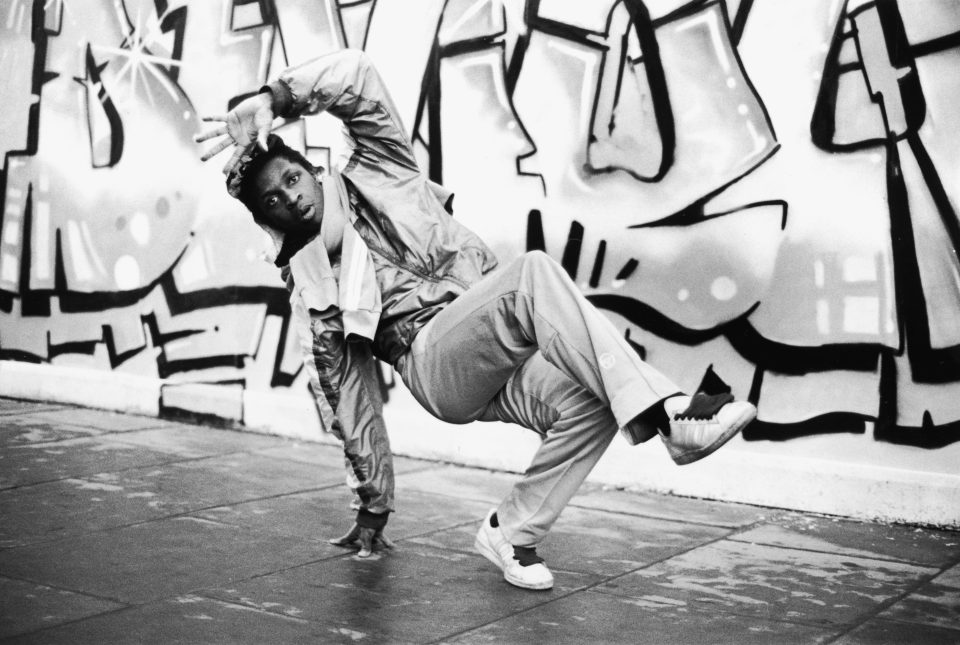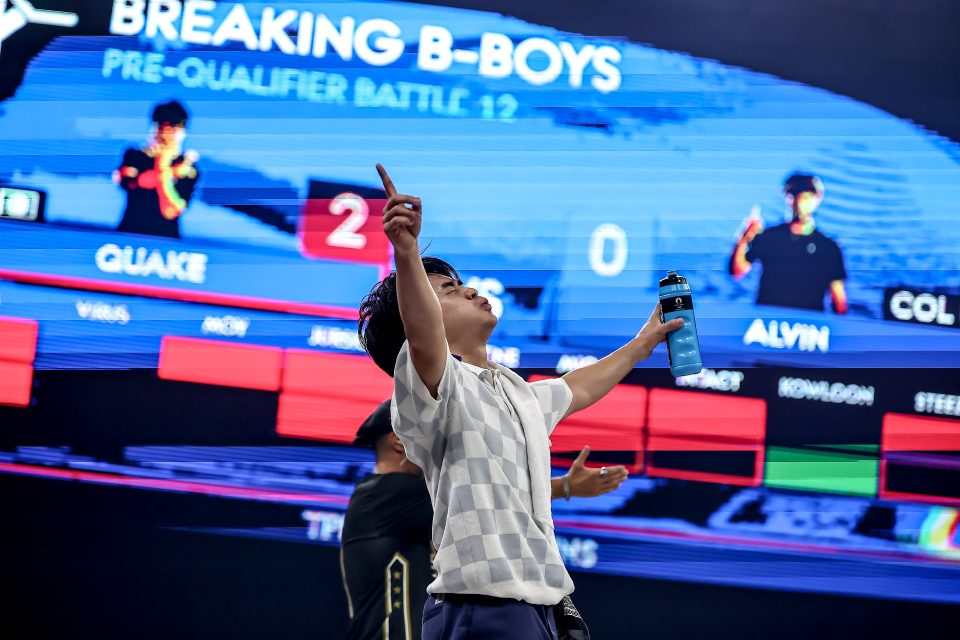Breaking took decades to make it from New York’s streets to the Paris Olympics. Despite a big sporting debut, its future still hangs in the balance
“Having that Olympic stamp for any sport changes the game of play,” an expert told Fortune. But what will breaking’s Olympic future look like?

Breaking, popularly called “breakdancing,” doesn’t require much—just some thumping beats and space to slide, collapse, jump and spin.
That’s probably what turned the dance form, which emerged in New York’s Bronx borough in the 1970s, into a global sensation.
The once-niche form of art is now among the most popular hip-hop exports, with competitions and pop-culture glory (think Step Up or Flashdance) to its name. Its power and cultural significance have spread to every corner of the world, with fans from France to China.
This year, everyone’s eyes will be on breaking as it makes its historic debut at the Paris 2024 Olympics, lending it an international stage unlike ever before.
Being part of the Olympics is considered the pinnacle of sporting success. The stakes are high, given the Games are trying to appeal to a dwindling audience by onboarding new sports.
But debuting this year in Paris doesn’t guarantee the future of breaking at the Olympics. The sport hasn’t been picked for the Los Angeles 2028 Games, marking a setback in a journey that, in some ways, just commenced.
Still, it’s a big moment for breaking as well as its “B-boys” and “B-girls.” Being in the Olympics this year has helped countries adopt a more formal structure to spot, train and nurture breaking talent. Its exclusion from the next Olympics doesn’t preclude its addition to future Games.
“It offers a level of cultural recognition and validation [for breaking]. It acknowledges its global impact and influence,” Joycelyn Wilson, a faculty member in Black media studies at Georgia Tech University, told Fortune of breaking’s Olympics moment.
The path to the Olympics
The Olympics, in its modern form, is a 128-year-old institution with events like track and field forming a quintessential part of it.
Breaking is quite unlike the other sports in this historic championship. It broke ground on New York’s streets over 50 years ago as one of hip-hop culture’s four elements, along with rapping, graffiti, and DJ-ing.
African-American, Latino, and Caribbean youth who were living in economically deprived, crime-ridden conditions were deeply involved in the sport from its earliest days.
To them, breaking was a form of artistic expression in response to the “break” of a song where the percussion is amplified. Soon enough, it became an integral part of their culture and was enthusiastically adopted by immigrants in countries across the pond.

Leon Morris—Hulton Archive/Getty Images
New sports can attract new audiences at the Olympics by stoking niche interests. For instance, in the Tokyo iteration, skateboarding made its debut with 80 athletes aged between 12 and 46 in Tokyo. Squash and flag football will be part of the Olympic sports list in four years’ time.
“Having that Olympic stamp for any sport changes the game of play,” said Born Barikor, the chair of U.K.-based governing body Breaking GB, formed in 2021.
Skateboarding, like breaking, was seen as an activity for hobbyists rather than a serious sport until international events gave it a credibility boost. But ever since, interest in skateboarding has increased worldwide.
Could breaking experience a similar lift? Possibly.
It already featured in the 2018 Youth Olympic Games in Buenos Aires. An International Olympic Committee (IOC) spokesperson told Fortune that breaking is a great fit given its focus on youth involvement and urban sports.
More importantly, the validation at the Olympics could help open doors for those looking to pursue breaking professionally. Communities with deep cultural connections to the dance-sport could have more agency than before, as their skills amount to something more tangible on an international stage with the glory of the Olympics attached to it.
“Paris will highlight the sport … and we are getting ready for that growth. So we’re getting ready to say, ‘actually, if little Margaret wants to get into breaking in Dorset, there’s a pathway,’” Barikor told Fortune. “We can reach and inspire communities that have not necessarily been able to be reached with traditional sports. It’s one as a sport that by nature encourages those that are from tough reality backgrounds to take part in physical activity.”

EITAN ABRAMOVICH—AFP/Getty Images
Subway, the fast-food chain, was one of the backers of breaking in Team Great Britain (which didn’t make the final cut to the Olympics). Its reason for supporting the sport was because it was “up-and-coming” and championed “movement amongst diverse communities.”
“Breaking brings together people of different ages, cultures and ethnic backgrounds and continues to grow in popularity across the U.K.,” a Subway spokesperson told Fortune.
The partnership with Breaking GB “will help increase accessibility to the sport through headline event partnerships (national championships), support for community events (workshops, masterclasses, battles) and funding for coaching and training,” the spokesperson added.
Breaking is clearly still in its early stages as it still faces barriers in the form of limited resources and funding to conduct training camps that prepare participants for an Olympics-scale event, Barikor told Fortune.
“We would love to have the funding, but as you can imagine, as a new sport, it’s all dependent on where you’re going to get medals,” he said.
Treading lightly—but making an impact
B-boys and B-girls will be judged on five criteria set by the IOC: musicality, vocabulary, originality, technique and execution. The music used during the competition must also be free of profanity and breakers’ scores will depend on how they respond to their opponents in a face-off format.
Some breakers have criticized the systematic format of breaking goes against the art form’s free-flowing, spontaneous nature.
That’s where striking a delicate balance between global recognition and authenticity becomes important.
Events surrounding the sport have become more commonplace, with Red Bull hosting one of the most high-profile annual competitions since 2004. As Red Bull pointed out, breakers from different parts of the world approach the sport differently—some do it to win, while others do it to enjoy a central piece of their culture.

David Balogh—Getty Images
Since breaking takes many meanings depending on who you ask, the Olympics event, which will kick off on Aug. 9, could either spark excitement or become a bad example of cultural appropriation that fails to honor the sport’s roots, said Wilson.
“It’s going to be really important that as the IOC takes this very significant step, that they take a significant step also in recognizing and including the context through which this art form comes,” she said. One way of doing this is by including seasoned breakers as judges.
For its part, the World DanceSport Federation (WDSF), the IOC-recognized governing body overseeing breaking, says it’s taking several steps to ensure the dance-sport form’s roots are recognized. Some steps it’s taking include involving prominent figures from the breaking community, educating the audience on the sport’s history and ensuring diversity in competitors.
The way WDSF sees it, breaking’s exclusion from the 2028 Olympics isn’t a “permanent setback,” a spokesperson told Fortune. As the sports roster is reviewed before every edition of the Games, factors like youth engagement, success at the Paris Olympics and global interest could increase breaking’s profile in the years to come.
How the tournament turns out remains to be seen. A successful debut could pave the way for opportunities in future Olympics while opening up funding to support careers in breaking. Wilson likened breaking’s promise to sports like basketball and football, which have served as anchors for young athletes to lift themselves from impoverished or disadvantaged situations.
“This is a platform that can help preserve and celebrate the culture from which breakdancing emerged,” she said.





